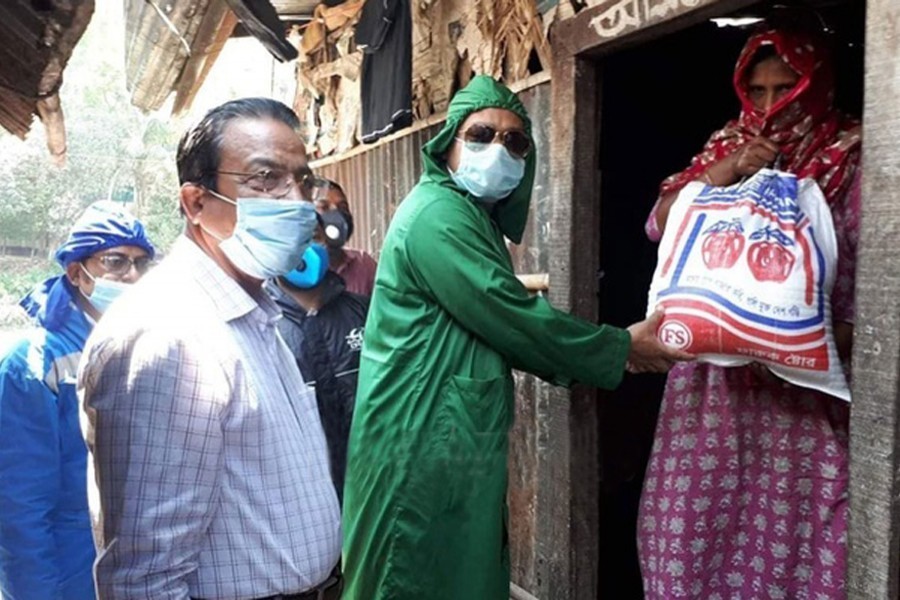Distribution of emergency relief materials among people stricken by great calamities is not strange to this land. Besides the recurring floods and nor'westers, the cyclone on 12 Nov, 1970, still remains witness to the most spontaneous mobilisation of relief efforts in Bangladesh history at private level. Yet thanks to the inadequate relief materials and haphazard distribution thousands had perished to death in that year. They excluded the reported total death toll of nearly 1.0 million. The aftermath of the detection of the Covid-19 virus in Bangladesh appears to be poised to experience the start of a massive job -- providing the ultra-poor with the basic survival requirements. They comprise food items and the ingredients needed to cook food. On the other hand, the very nature of the globally spread infectious disease warrants people to abide by a few obligatory rules.
In the few days into the moves of standing by the jobless day labourers, rickshaw-pullers and myriad types of vendors, manual workers etc one picture emerged as being common. These people are now at the end of their tether and, thus, have become desperate seekers of help -- especially food. Most of them are slum-dwellers. Some are homeless. At places, the relief goods seem to be too meagre compared to the people who assemble at designated venues. It proves the mind-boggling extent to which the demand for relief has been created over the last few days.
Evidently, the organisers of the relief distribution programmes range from mega institutions to mid-level private entities to community-based individuals. They include government agencies, the city corporations, large NGOs, business groups to neighbourhood clubs and lone individuals. The fact which remains relevant is the urgent need for larger quantities of food items. Lots of commercial entities, voluntary organisations, welfare associations etc in the urban areas are prepared to come forward with food items. But they cannot overcome their dilemmatic situation. The whole country now finds itself in a state of shutdown. The central and different local administrations have gone all-out to ensure that the anti-Covid-19 measure of social distancing is in place. The hard truth is when it comes to collecting relief materials, the scenario turns into a frenzied melee. Few bother to abide by the instruction of remaining at specified distances from each other. Sometimes, the whole initiatives end up in a complete mess. Lately of course it seems to be better managed by drawing circles to maintain distance. The whole episode revolves round human miseries: to speak without mincing words, near-starvation. Occasional print media photographs of barely conscious people lying on roadsides elucidate the spectacle. In spite of the terrible nature of the disease demanding isolation, this plight of food-scarce indigent pockets of people is heart-rending. But then, the situation is not wilful creation of any quarters.
A practical way out could be, as proposed by the government, storing of all relief goods at a single point under the supervision of the district administration. Then sending the materials to all parts of the country through risk-free official channels cannot be bogged down in mismanagement. It's time the authorities swung into action. Because it involves food, the basic precondition for survival. The country is trying its best to cope with the deadly coronavirus. And it cannot allow hunger to cripple its underprivileged manpower. It's because food stocks are sufficient.


